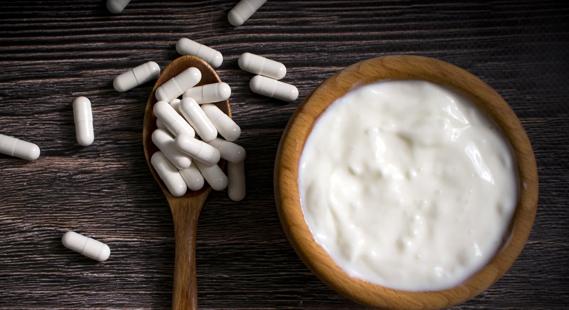Naturally Boost Gut Health: 19 Delicious Foods Rich in Probiotics
Are you looking to improve your digestion and boost your immune system naturally? Probiotics, the beneficial bacteria that reside in your gut, can play a vital role. While supplements are an option, many delicious foods are naturally packed with probiotics. Let's explore 19 probiotic-rich foods you can easily incorporate into your diet for improved gut health.
Understanding Probiotic Strains: Which Bacteria Matter?
Probiotic foods contain various types of healthy bacteria, each offering unique benefits. Keep an eye out for these common and beneficial strains.
- Lactobacillus: This genus includes L. acidophilus, L. rhamnosus, L. casei, and L. plantarum.
- Bifidobacterium: Key species include Bifidobacterium longum and Bifidobacterium breve.
Top Probiotic Foods to Add to Your Diet
Ready to enhance your gut health? Here are some of the best foods to include in your diet.
Yogurt: A Probiotic Powerhouse
Yogurt stands out as a top source, boasting a diverse range of healthy bacteria, including Lactobacillus and Bifidobacterium. Look for the "Live & Active Cultures" seal. Opt for plain varieties to avoid excessive added sugars. According to registered dietitian Maria Garcia Luis, high-quality yogurt is comparable to over-the-counter probiotic supplements.
Sauerkraut: Tangy and Beneficial
This fermented cabbage dish is a traditional Eastern European staple loaded with probiotics. For maximum benefit, choose unpasteurized sauerkraut, as pasteurization can kill the live bacteria.
Kimchi: A Korean Gut-Health Secret
Kimchi, a flavorful Korean side dish made from fermented cabbage and other vegetables, delivers a healthy dose of Lactobacillus. Its spicy and savory profile makes it a delicious way to support your gut.
Kefir: More Than Just Probiotics
Kefir is a fermented milk drink that contains both probiotics and postbiotics. Its low lactose content makes it suitable for individuals with lactose intolerance. Enjoy kefir for a comprehensive approach to gut health.
Tempeh: A Fermented Protein Option
Tempeh, a fermented soy product, offers a plant-based source of protein along with beneficial probiotics like Lactobacillus and Bifidobacterium. It supports digestion, immunity, and overall gut health.
Miso: The Umami-Rich Probiotic Source
Miso, a Japanese seasoning made from fermented soybeans, salt, and koji, provides probiotics like Aspergillus oryzae and Saccharomyces cerevisiae. Add it to soups and marinades for an umami flavor boost.
Kombucha: Proceed with Caution
Kombucha, a fermented tea, often gets attention for its probiotic content. However, its high sugar content and the fermentation process can cause digestive issues like gas and diarrhea if consumed in excess.
Other Fermented Vegetables: Expanding Your Probiotic Palette
Explore other fermented vegetables, ensuring they are fermented with salt and lactic acid bacteria, not pickled in vinegar.
- Pickles
- Pickled beets
- Pickled carrots
- Pickled radishes
Don't discard the brine! It’s packed with probiotics.
Additional Foods with Probiotics
While these foods contain fewer probiotics than the options listed above, they can still contribute to your overall gut health.
- Sourdough bread
- Jackfruit
- Coconut milk
- Buttermilk
- Natto (fermented soybeans)
- Cheeses like cheddar, mozzarella, and gouda
- Cottage cheese
- Sour cream
How to Introduce Probiotic Foods Into Your Diet
There's no set daily amount for probiotic foods. Maria Garcia Luis advises introducing them gradually into your diet, starting with one or two foods. This approach helps prevent digestive discomfort like diarrhea or abdominal cramping. By diversifying your diet with these probiotic-rich options, you'll be well on your way to a healthier gut and improved overall well-being.


